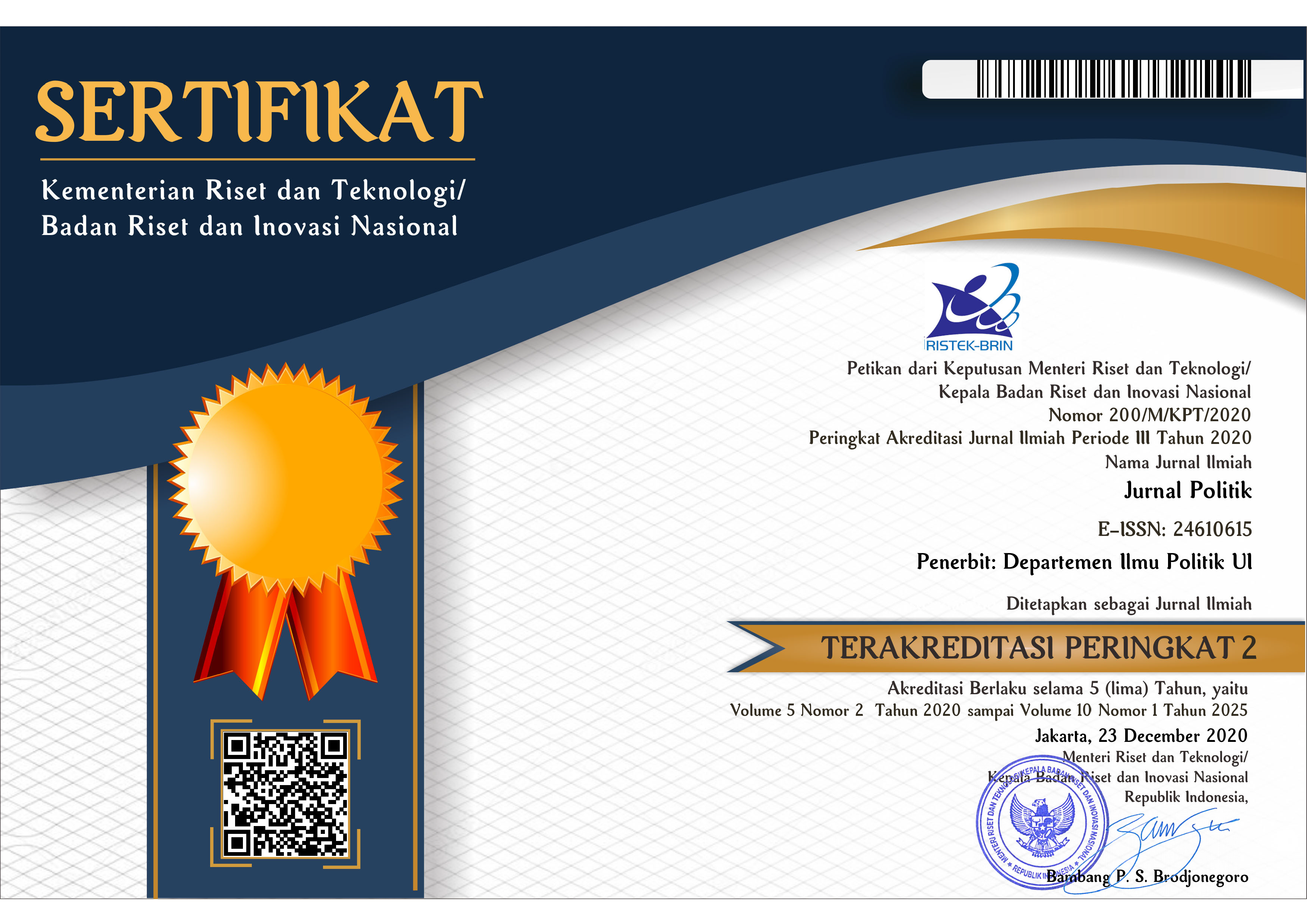Abstract
Indonesia underwent democratization after more than 20 years (1998–2020), but many studies conclude that the country’s democracy is not consolidated and suffered a setback, at least in the last five years. An increase in political intolerance in society is believed to be the cause of this setback. However, studies on Indonesian political tolerance are biased and thus do not reflect actual conditions of general tolerance. This study offers a new unbiased strategy called “content-controlled measures of political tolerance” in the research on political tolerance. This strategy has been used in a series of national public opinion surveys for a relatively long period (2004–2019) and is a source of scarce data for this study. Results present a new finding that preference for democracy, as a measure of democratic consolidation at the attitudinal level, is not accompanied by political tolerance. In fact, political tolerance weakens the consolidation of democracy, which is a symptom of a condition that the author calls the “intolerant democrat syndrome.” In this syndrome, preference for democracy is hampered by political tolerance and vice versa. This syndrome makes the consolidation of Indonesian democracy difficult. Further research on the causes of the emergence of this syndrome is necessary; however, the author suspects that the current constitution contributes systematically to this syndrome.
Recommended Citation
Mujani, Saiful
(2020)
"Intolerant Democrat Syndrome: The Problem of Indonesian Democratic Consolidation,"
Jurnal Politik: Vol. 6:
Iss.
1, Article 1.
DOI: 10.7454/jp.v6i1.1006
Available at:
https://scholarhub.ui.ac.id/politik/vol6/iss1/1


